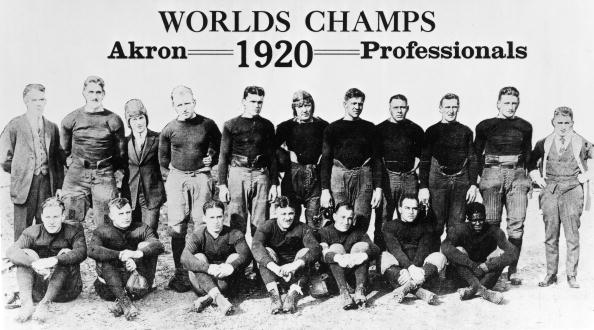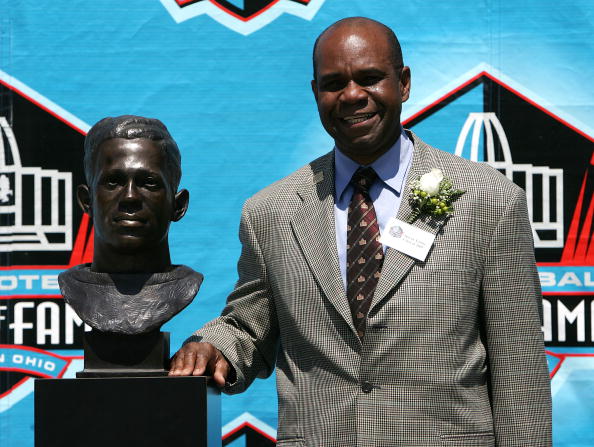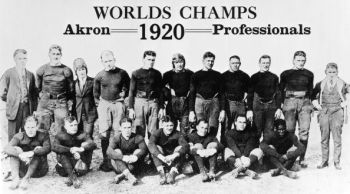
Source: B Bennett / Getty
It’s no secret that the National Football League has a problem when it comes to providing opportunities for Black coaches. It’s not uncommon to see Black and brown folks working as offensive and defensive coordinators, but when it comes to head coaching roles, there are sadly only a handful of examples. Even when Black men are given head coaching opportunities, they’re held to a different standard than white coaches. Steve Wilkes was given only a season to coach the admittedly trash 2018 Arizona Cardinals roster while his successor, Kliff Kingsberry, a white college coach with a losing record, was given four seasons to continue his losing ways. The NFL still has a lot of progress to make when it comes to Black coaches, but today we want to focus on the man who broke the color barrier and became the first Black head coach in professional football: Fritz Pollard.
MORE: Here’s Every Black Head Coach In NFL History
Born in 1894, Fritz Pollard was a pioneer in both collegiate and professional sports. He was raised in Rogers Park, Illinois, played football, baseball and ran track during his youth at Lane Tech High School. Upon graduating, he would make history for the first time by becoming the first Black football player at Brown University. This was far before the days of integration, so his presence on the playing field wasn’t entirely welcome. His own teammates initially didn’t want anything to do with him. That is, not until he showcased his insane, Sonic the Hedgehog-level of speed, earning himself the nickname “The Human Torpedo.” Still, despite his considerable talents on the field, he was subjected to verbal and physical abuse from both rival teams and fans.
Pollard achieved many firsts as a Black man in pre-integrated sports. He was the first Black man to play in the Rose Bowl in 1916, the first Black man to be named to Walter Camp’s All-American Team, and he, along with Bobby Marshall, became the first two Black men to play in the NFL in 1920.

Source: Jonathan Daniel / Getty
His coaching career was no walk in the park. His entire tenure in professional sports was long before the Civil Rights Movement, during a time when open racism toward Black folks was an everyday occurrence. During his time at Lincoln, he was critical of the lack of support his team received from the school administration. One notable example was a game against Hampton, where the team had to travel by boat and they weren’t provided lodging on the boat or in the city once they arrived. Pollard would later say that his team lost that game due to a lack of rest. His professional career coincided with his collegiate coaching career, though not entirely by choice. He was paid a paltry sum by Lincoln and played professionally to bolster his earnings.
Fritz Pollard joined the Akron Pros in 1920, going on to win a championship in his first year. The following year, he was named co-head coach of the team while still playing as a running back. Not content to leave it at that, he would go on to become the league’s first Black quarterback in 1923.
Pollard was truly a trailblazer in professional sports and an all-around threat. He was so good at what he did, that the league’s owners would go on to implement an informal ban on Black players in the league through the 1930s. He was well past his playing days at this point, but he didn’t want to sit back and let so many great Black talents go unseen. Pollard founded and coached the Brown Bombers, a semi-pro team that consisted of entirely Black players, including Paul Robeson. The Brown Bombers (predictably) played some incredible football but unfortunately disbanded in 1938 as a result of the Great Depression. While their short-lived success didn’t have much impact on the NFL in the short term, the league eventually reintegrated in 1946.
His legacy has continued long after his passing in 1986. The Fritz Pollard Association was founded in 2003 to address the coaching disparity in the NFL. The organization spotlights and campaigns for Black coaches they feel deserve an opportunity. The association was even instrumental in the passing of the Rooney Rule, a requirement for all NFL teams to interview at least one non-white candidate when searching for a new head coach. While there has been criticism in recent years that the rule doesn’t go far enough considering the existing coaching disparity, the work by the FPA has led to 14 non-white head coaches being appointed in the time since its founding. In 1954, Pollard was the second African American inducted into the College Football Hall of Fame, he was posthumously inducted into the Pro Football Hall of Fame in 2005, and the Rose Bowl Hall of Fame in 2015.
While it’s sadly still an anomaly to see Black head coaches, when it comes to Black quarterbacks it’s a different story. Of the 32 starting quarterbacks in the league, a record 14 are Black. This includes the generational talents of Patrick Mahomes, Jalen Hurts and Lamar Jackson. They follow the path Pollard laid out 100 years ago. Sadly, Pollard’s story is only known amongst football historians. We can only hope his legacy continues to receive the respect it has long deserved.
SEE ALSO:
Notable NBA Players Who Attended HBCUs
Rest In Power: Notable Black People Who Have Died In 2023
The post Who Was The 1st Black Head Coach In The NFL? appeared first on NewsOne.
Who Was The 1st Black Head Coach In The NFL? was originally published on newsone.com















